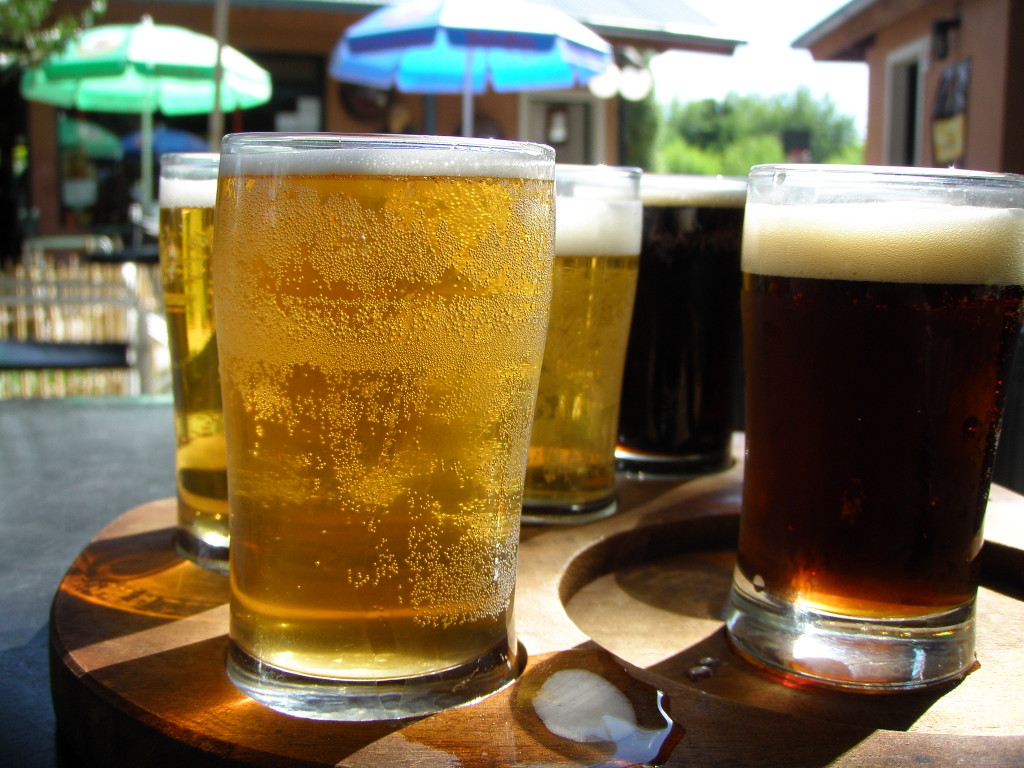The Book Stack #2

What have we this time around?
You look at the title, Bread Wine Chocolate, and you’re already engaged. I mean, what’s not to like? Clearly three items selected from the book to grab our attention, since in reality, the book is, in order, Wine Chocolate Coffee Beer Bread Octopus. The book came highly anticipated, with suggestions being bandied about that this would be the next big, amazing food book. I clicked a link, put in my Kindle cue to be purchased when it was released, and more or less forgot about it until it showed up one day. I might have left my cursor hovering over the button rather than clicking, had I taken a moment to check out the author, Simran Sethi, a former MTV producer turned news anchor for, oh, MTV, who has gone on to continue work in the media world for various… how can I put this politely… touchie feelie outlets like Mother Earth News and TreeHugger. I’m not, at all, against the environment, sustainability, or anything else of the sort, don’t get me wrong, but it might have had me wondering about her bias in advance, rather than after the fact.
Though in truth, it’s not her bias that ruins this book for me. It’s her writing. I really wanted to like the book. There’s some great, well researched information in it. The problem is, it’s presented in a manner that ping-pongs back and forth between journalistic factual reporting and breathless golly gee whiz wow teen girl gossip style at a pace that would make the cut editors of Reality Bites envious. She also comes across as really, really, self absorbed, self indulgent, and self anything else you might care to insert, as she wings her way across the world with hand-grinder for coffee beans in one hand and an Aeropress brewer in the other, ruing that she isn’t back home with her Keurig machine (oh yeah, all those K-cups are just great for the environment) and her $13 designer chocolate bars. She spends the first couple of chapters of the book outlining what she’s going to cover and why she’s the one to do so, and how much we’re going to appreciate her having done so. Yes, yes, she got down and dirty with the folk who produce these various products, and sampled and tasted and learned to appreciate things at their source. And then promptly trundled back to her hotel to soak in the tub and anxiously write her next words on the balcony at sunset and then jet off to another exotic locale. If you like to hug trees, you’ll probably like this book.
I mentioned in the last book round-up that I had started working my way through a proposed list of the 51 Best Fantasy series. I’m not sure why it didn’t occur to me, that if they’re rated from best, #1, to least best, #51, that progressively, I might like these series less, and less. I’m not sure that will hold true completely – after all, as I mentioned then as well, the Discworld canon wouldn’t even make it onto my list of good, let alone 7th Best. But there does seem to be a slight decline each round. I’ve started in on Joe Abercrombie’s The First Law trilogy, beginning with The Blade Itself. It’s a relatively easy read.
There are things about it I really like – it’s written in a light-hearted tone, with a bit of humor. The series is often compared to Song of Fire and Ice, the Game of Thrones inspiring stack of books, and in some ways, I can see that – the action sequences, the bloody, grisly, details. But in other ways, not so much – the political manipulations and intrigue are there, but more or less ho-hum, there doesn’t seem to be any big, sweeping vista – within the first few chapters it’s obvious that all the lead characters’ lives are going to quite quickly intersect, in a pretty predictable way. Some reviewers have said that that gets turned on its head as the trilogy progresses, and by the end of the third book, nothing will be as anticipated. I can only hope so. It’s interesting enough to continue forward.
One of the finest books from one of the early crafters of modern science fiction, Alfred Bester’s The Stars My Destination is a long time favorite that I hadn’t read in quite some time. Another list of “bests”, this time from io9, The Essential Cyberpunk Reading List starts off with this one.
Filled with Evil Corporations, interplanetary intrigue, bio-engineering, power, greed, revenge, and the obligatory Sub-Culture, this has all the elements that make for a great cyberpunk read. Given when this was written, in the early 1950s, it’s a brilliant precursor to that movement at a time when “cyber” didn’t yet mean anything and “punk” meant something completely different. Gripping story, fast paced action, and even it’s own “street” language that fits the genre perfectly. It’s a relatively short book (or at least in comparison to some of those I’ve been reading recently), and with its pace, it’s the sort you can sit down and read through on a rainy afternoon.
A couple of years ago I read the book Of Dice and Men, a look back at the early days of Dungeons & Dragons, and, those of us nerds who played it. I was an avid player of the game back in the mid to late 70s, and have continued a fascination with the world(s) created by Gary Gygax and Dave Arneson, the original duo behind the game. I’ve gone on to play computer based games, both early ones that were limited to being installed on your computer and played by one or a couple of people, and on, to MMORPGs, the massive universes created online like Everquest and Worlds of Warcraft.
The earlier book I mentioned was mostly focused on the game itself, and the gamers who took it and ran with it. There was plenty of biographical information about the creators, but you couldn’t call it biography. Michael Witwer’s Empire of Imagination takes another run at it. As he says in the introduction, he couldn’t believe when he started researching the book that no one had ever written a biography of Gary Gygax, who, while not a household name except to those of us in the gaming world, created something that went on to be the foundation for things we take for granted in modern day life, everything from the use of computers for games, to the advent of social media. As he also points out, it’s telling, that in an episode of the pop-culture show Futurama, Gygax’s character is paired up with Lieutenant Uhura, Al Gore, and Steven Hawking – taking on the universe. The book is well written, completely engaging, and for anyone with an interest in the topic, a must read.
